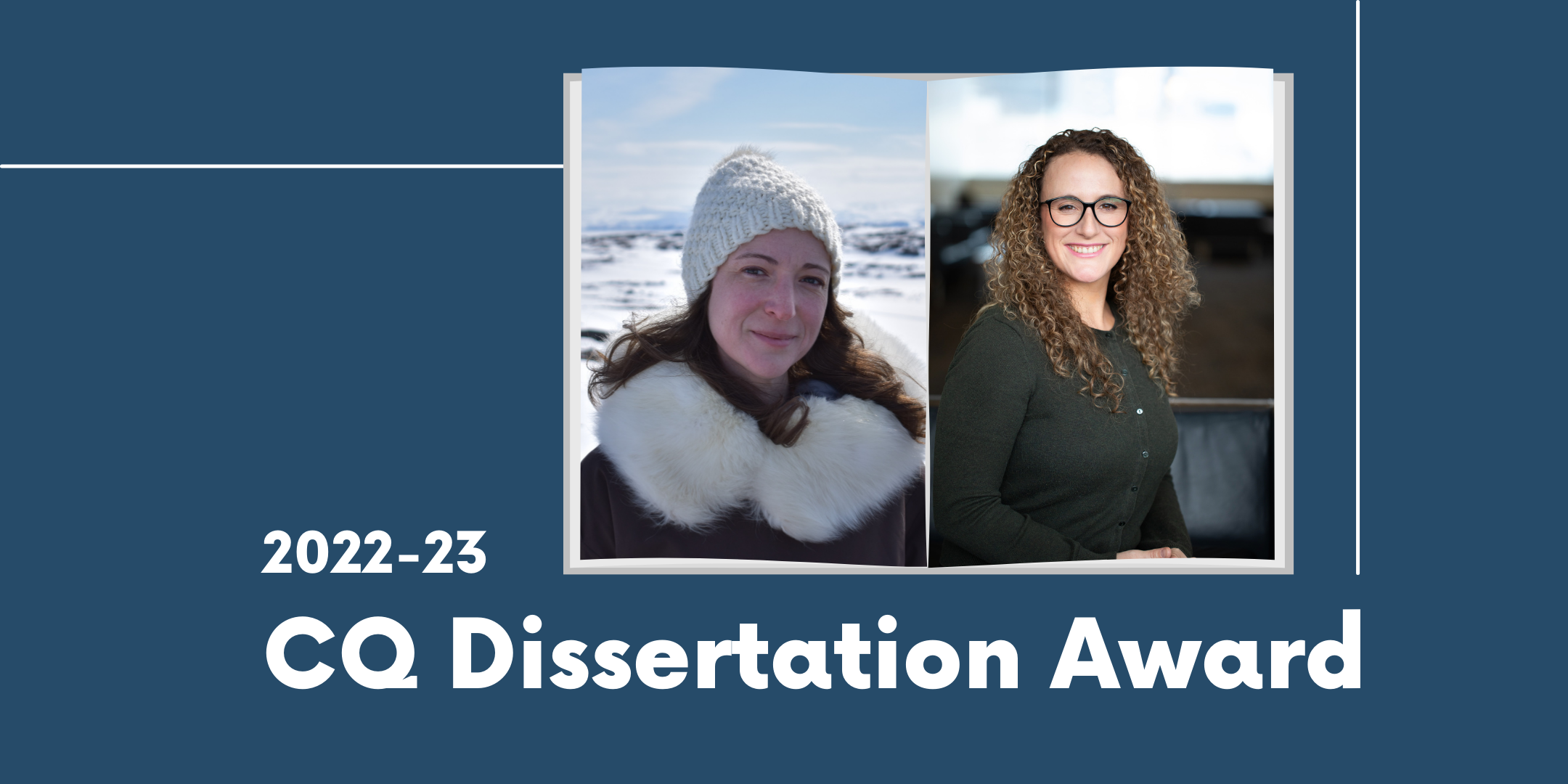We are pleased to announce two winners of the Joan Eakin Award for Methodological Excellence in a Qualitative Doctoral Dissertation this year! The co-recipients of the 2022-23 Dissertation Award are Dr. Astrid Escrig-Pinol for her thesis titled, “Salud, Dinero y Amor: Mexican Women and their Extended Families Confronting Precarity in a Canadian Agricultural Labour Migration Program” and Dr. Janna MacLachlan, for her dissertation “Naalagiursaniq Tunnganarnirlu (Learning to Listen and be Welcoming): Engaging Inuit Perspectives on Timimut Ikajuqsivik (Rehabilitation Services) for Children in the Qikiqtani Region of Nunavut”.
The Award Committee had the following to say about Dr. Escrig-Pinol’s work:
Escrig-Pinol’s dissertation investigates the experiences of Mexican women in the Seasonal Agricultural Worker Program (SAWP) and their extended families. The dissertation committee found the work to be a sophisticated and deeply engaging rendering of complex and inter-related theories/concepts including post-colonialism, post-colonial feminist thought, de-colonial theory and cognitive injustice. The multi- country ethnographic approach comprises an exciting methodological innovation called the emojional calendar, which functions as a graphic participatory method and a culturally appropriate entry point to discuss health and well-being. Escrig-Pinol’s writing is eloquent, elegant, and compelling – all evidence of mature scholarship. Importantly, they integrate reflexivity as a key analytical stance. The dissertation functions to increase public knowledge about the social, economic, and political conditions shaping the health and well-being of migrants and their families. In addition, the research advances our understanding of health equity by critically analyzing gaps and opportunities in policy and programs to improve the health and well-being of transnational migrant families.
The Award Committee made the following comments about Dr. MacLachlan’s submission:
MacLachlan’s dissertation advances knowledge on how the timimut ikajuqsivik (rehabilitation) interests of Inuit children in the Qikiqtani Region of Nunavut can be understood and supported. As a means of redressing inequitable power dynamics that privilege Eurocentric health perspectives over those of Inuit, the thesis deploys critical decolonializing theory to interrogate dominate power relations and open up opportunities for social justice. The dissertation committee was impressed by the consistent and productive use of reflexivity, whereby readers are made aware of MacLachlan’s White settler academic status and intention to practice critical allyship. The methodology’s origins in community engagement and commitment to Inuit epistemologies are meritorious. This approach is complimented by critical theory which helps to expose colonialism and support change. An innovative and exciting component of the dissertation is the development of an accountability framework to support bridging Inuit worldviews and the critical paradigm. MacLachlan advances important insights about the difficult work of bridging and balancing paradigms, which is inevitably a social process. The framework builds on recent recommendations for investment in paradigm bridging projects that foreground Indigenous worldviews in research.

